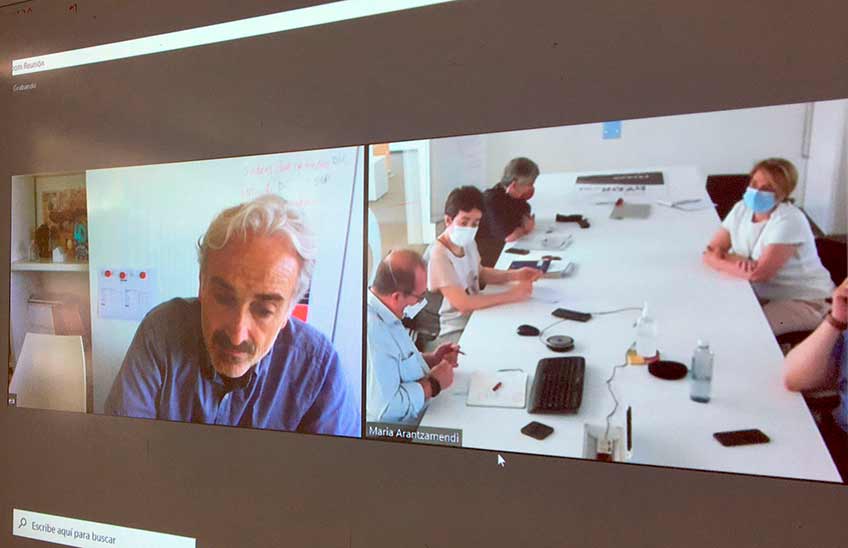"The listening and empathy of palliative care professionals is better than a medicine".
A patient's family member and a palliative medicine professional recounted their experience of gratitude in palliative care during a seminar of the Institute for Culture and Society

FotoVictoria de Julián/<br>Javier Errea (izda.) se reunió con el grupo de investigación en cuidados paliativos ATLANTES a través de la plataforma ZOOM
17 | 06 | 2021
"The listening and empathy of palliative professionals are better than a medicine". This was stated by Javier Errea, journalist and relative of a palliative care patient during a seminar organized by the project 'The phenomenon of gratitude in the field of palliative care'. of group of research in palliative care ATLANTES of the Institute for Culture and Society (ICS) of the University of Navarra. The event was also attended by Ana Larumbe, a professional from the service of Palliative Medicine Service of the Clínica Universidad de NavarraThe event was also attended by Ana Larumbe, a professional from the Palliative Medicine Service of the University of Navarra, and served to share the palliative care experience of patients' relatives, such as Errea, and professionals from this area, Larumbe.
Errea's father died in March 2020 due to amyloidosis. He had been ill for five years when he took a turn for the worse in 2019 and was admitted to the emergency room. "We were told there was no solution," the journalist recalled. His father was given two months to live but lived eight months as a patient in the Palliative Care Unit of the Hospital San Juan de Dios. He emotionally recounted the experience of those "eight wonderful months", in which they had "a very rich time to say goodbye calmly, with an incredible joy, despite the pain".
Carlos Centeno, researcher main group ATLANTES, asked Errea if he saw a connection between the serenity of his father's last months and the work of the palliative care professionals. He affirmed this and stressed that his father was "at ease" when the professionals from San Juan de Dios came to his house because he knew he was "in good hands". Of the work palliative care professionals, he highlighted their listening and empathy.
Larumbe corroborated Errea's impression and explained that palliative medicine professionals make an effort to "listen a lot and be very observant", in order to establish a relationship of trust with the patient and their family and to be able to attend to them in the best possible way staff. The journalist concluded that the confidence inspired by the team at San Juan de Dios had to do with their "exquisite medical care" and that "they don't hide, they don't pretend that nothing is wrong, they look at what has no solution".
Finally, Larumbe reflected on the expressions of gratitude from patients and families. She recounted that one patient gave her "a bracelet in a little box". Perplexed that a patient at status at the end of life would have taken the time to buy her a gift, she found it hard to accept. In the end, she realised that palliative care professionals "must learn to receive thanks" because families need to be grateful, as "it is a way of closing the cycle".
